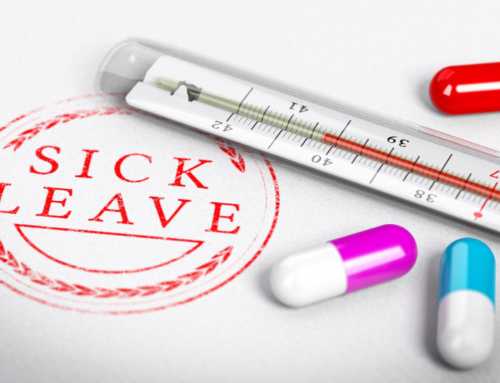Employees are allowed time off to deal with an emergency involving a dependant.
A dependant could be a spouse, partner, child, grandchild, parent, or someone who depends on the employee for care.
Employees are allowed a reasonable amount of time off to deal with the emergency, but there’s no set amount of time as it depends on the situation.
Example
If the employees child falls ill they could take time off to go to the doctor and make care arrangements. The employer may then ask them to take annual leaveor parental leave if the employee wants to look after their child for longer.
[hr height=”30″ style=”default” line=”default” themecolor=”1″]
Limits on time off
There are no limits on how many times employees can take time off for dependants.
Pay
The employer may pay employees for time off to look after dependants but they don’t have to. Any payment made is discretionary unless written in the employees contract or the employee handbook
Exceptions
Employees can’t have time off if they knew about a situation beforehand. For example the employee wouldn’t be covered if they wanted to take their child to hospital for an appointment. They might get parental leave instead.
[hr height=”30″ style=”default” line=”default” themecolor=”1″]
Compassionate leave
If employees aren’t given time off for dependants, an employer may allow the employee to take ‘compassionate leave’ – this can be paid or unpaid leave for emergency situations. Their is no statutory obligation to offer compassionate leave, and is at the discretion of the business.
[hr height=”30″ style=”default” line=”default” themecolor=”1″]
Illness, injury or assault
This includes mental or physical illnesses that don’t have to be life-threatening or need full-time care – it could be an existing condition that has worsened.
For example, if a dependant is mugged without being physically hurt, you could take time off to comfort or help them.
Employees can also take time off to arrange longer term care for a dependant.
[hr height=”30″ style=”default” line=”default” themecolor=”1″]
Having a baby
Employees could take time off if a dependant goes into labour unexpectedly and they rely on the employee to take them to the hospital. The employee can’t take time off for dependants after the birth to care for the child, unless it’s an emergency. However, if they are the child’s parent they could be entitled to paternity or parental leave.
[hr height=”30″ style=”default” line=”default” themecolor=”1″]
Disruption of care arrangements
Employees could get time off if:
- a child minder or carer doesn’t turn up to look after a dependant
- a nursing home or nursery closes unexpectedly
[hr height=”30″ style=”default” line=”default” themecolor=”1″]
If the employees child is involved in an incident during school time
Employees could get time off if their child has been:
- involved in a fight
- injured on a school trip
- suspended from school





Leave A Comment
You must be logged in to post a comment.